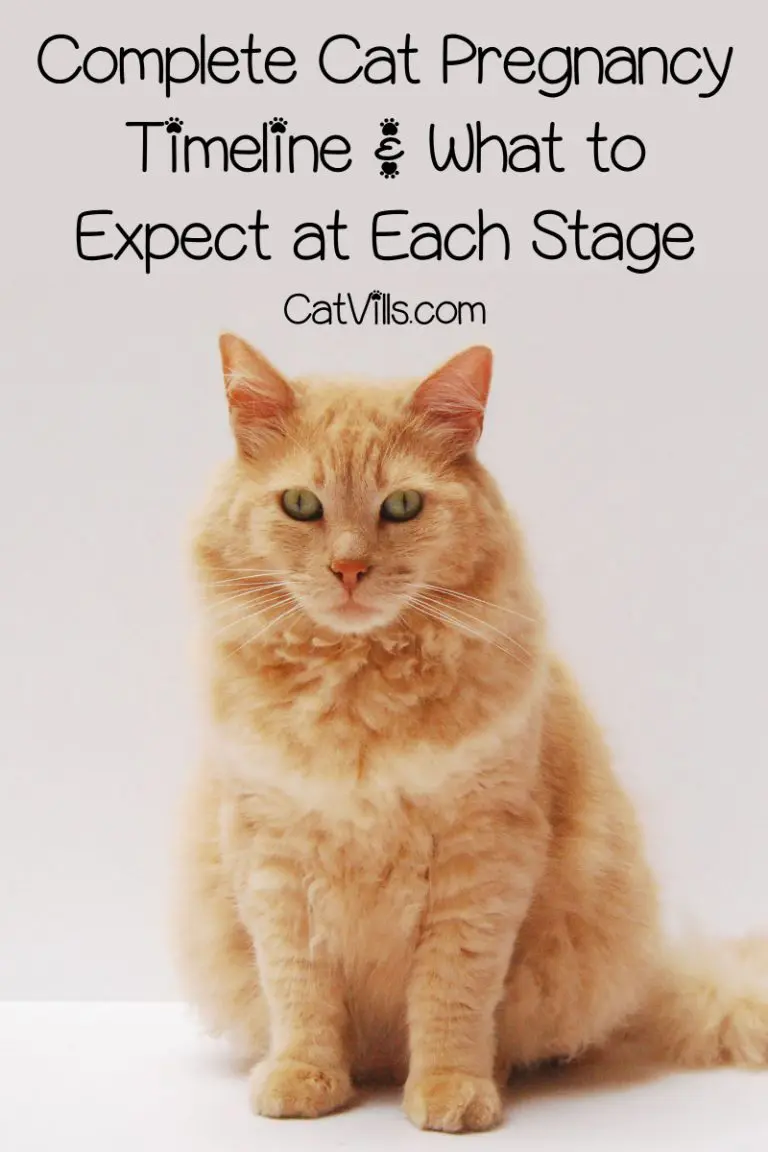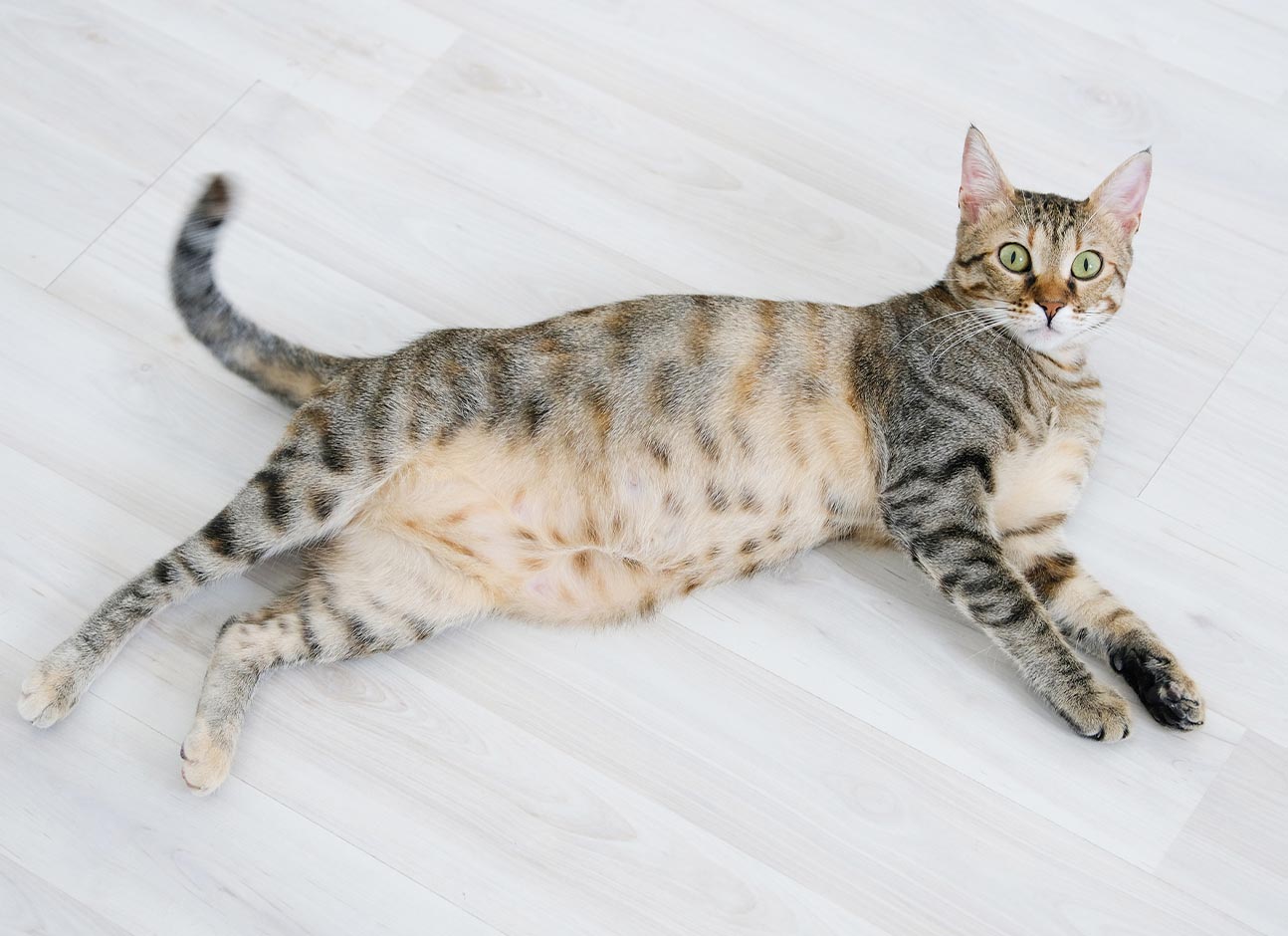Cats are fascinating creatures, and understanding their pregnancy process is crucial for every responsible pet owner. If you're wondering about the duration and stages of a cat's pregnancy, you're in the right place. This article will delve into every aspect of feline gestation, ensuring you are well-prepared for your cat's upcoming journey into motherhood.
As a cat owner, it’s essential to know the signs, stages, and duration of pregnancy in cats. Recognizing these aspects will help you provide the necessary care and support for your pet during this critical period. Understanding the timeline and what to expect can make a significant difference in ensuring both the mother and kittens thrive.
This guide is crafted with the aim of offering detailed information about cat pregnancy, including how to identify if your cat is pregnant, the average gestation period, and tips for caring for your pregnant cat. By the end of this article, you'll be equipped with all the knowledge you need to ensure your cat has a healthy and comfortable pregnancy.
Read also:Dixiem Damelio Onlyfans Leaked Unveiling The Truth And Addressing Privacy Concerns
Understanding Cat Pregnancy
Cat pregnancy, also known as gestation, is a delicate yet natural process. Typically, the pregnancy time for a cat lasts around 63 to 67 days, though it can vary slightly depending on the individual cat. During this period, your cat will go through several stages, each requiring specific care and attention.
Here are some key factors to consider:
- Pregnancy usually begins after a successful mating session.
- The average gestation period is approximately 9 weeks.
- Signs of pregnancy include behavioral changes, weight gain, and visible swelling of the abdomen.
Signs Your Cat Is Pregnant
Physical and Behavioral Changes
Identifying pregnancy in cats can sometimes be challenging, especially in the early stages. However, there are several physical and behavioral indicators that can help you confirm if your cat is expecting kittens.
Physical signs:
- Pink and swollen nipples (commonly referred to as "pinking up").
- Gradual increase in weight.
- Enlargement of the abdomen as the pregnancy progresses.
Behavioral changes:
- Increased affection and seeking more attention from owners.
- Changes in eating habits, such as increased appetite.
- Nesting behavior as the due date approaches.
The Average Pregnancy Time for a Cat
The average pregnancy time for a cat is about 63 to 67 days, which is roughly equivalent to nine weeks. This period can vary slightly depending on the breed and individual health of the cat. It's essential to monitor your cat closely during this time to ensure a smooth pregnancy and delivery.
Read also:Strawberry Shortcake Leaks A Comprehensive Analysis And Insights
Understanding the timeline helps you anticipate key milestones and prepare for any necessary veterinary care. For instance, around the 30-day mark, your veterinarian may perform an ultrasound to confirm the pregnancy and estimate the number of kittens.
Stages of Cat Pregnancy
First Trimester (Days 1-21)
During the first trimester, the fertilized eggs implant into the uterine lining, and the embryos begin to develop. At this stage, there may not be any visible signs of pregnancy, but your cat might exhibit slight behavioral changes.
Second Trimester (Days 22-42)
In the second trimester, the kittens start to develop more distinctly. Your cat’s abdomen will begin to enlarge, and her nipples may become more prominent. It's crucial to ensure she has access to a high-quality diet rich in nutrients to support the developing kittens.
Third Trimester (Days 43-63)
The third trimester is when the kittens grow rapidly, and your cat’s abdomen will be noticeably larger. She may also start showing nesting behavior, seeking a quiet and comfortable place to give birth. Providing a suitable birthing area during this stage is essential.
Nutritional Needs During Pregnancy
A pregnant cat requires a nutrient-rich diet to support both her health and the development of her kittens. High-quality kitten food is often recommended during this time due to its higher protein and calorie content.
- Ensure a balanced diet with adequate protein, fat, and essential vitamins and minerals.
- Provide fresh water at all times.
- Consult your veterinarian for specific dietary recommendations based on your cat's needs.
Veterinary Care for Pregnant Cats
Regular veterinary check-ups are vital during your cat's pregnancy. Your veterinarian can monitor the health of both the mother and kittens, ensuring everything is progressing as it should.
Key veterinary services include:
- Ultrasound or X-rays to confirm pregnancy and estimate the number of kittens.
- Parasite control and vaccinations, if necessary.
- Guidance on proper nutrition and care throughout the pregnancy.
Preparing for the Birthing Process
Creating a Safe and Comfortable Environment
As your cat approaches her due date, it's important to prepare a safe and comfortable space for her to give birth. This area should be quiet, warm, and free from disturbances.
Consider the following:
- Provide a soft, clean bed or nesting box.
- Ensure the area is easily accessible but away from high-traffic zones.
- Have necessary supplies ready, such as clean towels and a heating pad (if needed).
Common Concerns and Complications
While most cat pregnancies proceed without complications, there are some concerns to be aware of. These include:
- Pregnancy-related illnesses, such as toxemia.
- Difficult labor (dystocia), which may require veterinary intervention.
- Insufficient milk production after birth.
Stay vigilant for any signs of distress or unusual behavior in your pregnant cat and contact your veterinarian if you have concerns.
Caring for Newborn Kittens
Postpartum Care for Mother and Kittens
After the birth, both the mother and kittens require special care. The mother will need a nutritious diet to support milk production, while the kittens will rely on her for warmth and nourishment.
Key postpartum care tips:
- Monitor the kittens to ensure they are nursing properly.
- Keep the birthing area clean and free from drafts.
- Schedule a veterinary check-up for both the mother and kittens within the first few weeks.
Conclusion
In summary, understanding the pregnancy time for a cat is crucial for ensuring a healthy and successful birthing process. By recognizing the signs of pregnancy, providing proper nutrition, and preparing for the birthing process, you can help your cat through this important period.
We encourage you to share this article with fellow cat enthusiasts and leave your thoughts or questions in the comments section below. For more informative content about pet care, explore our other articles and resources.
Table of Contents
- Understanding Cat Pregnancy
- Signs Your Cat Is Pregnant
- The Average Pregnancy Time for a Cat
- Stages of Cat Pregnancy
- Nutritional Needs During Pregnancy
- Veterinary Care for Pregnant Cats
- Preparing for the Birthing Process
- Common Concerns and Complications
- Caring for Newborn Kittens
- Conclusion


